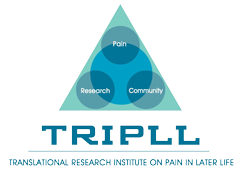The Relationship Between the Pain Experience and Emotion Regulation in Older Adults
Emotional states, such as depression and anxiety, play an important role in the pain experience. Fear of pain and catastrophic thinking about pain also have a negative impact on the pain experience and contribute to disability. Emotion regulation (ER) is the process of monitoring and evaluating emotional reactions and using strategies for altering when and how emotions occur. Commonly studied in the ER literature are the strategies of expressive suppression and reappraisal. Reappraisal involves changing the way one thinks about an emotional event while expressive suppression can involve hiding emotional states by inhibiting nonverbal behaviors indicative of such states. Emotional suppression has been shown to increase physiological symptoms of anxiety and to decrease positive mood compared with reappraisal. Overall, most of the studies reviewed showed that the relationship between ER and pain was mediated by a psychological response. Although cognitive reappraisal was not found to have an impact on the level of pain reported in these studies, expressive suppression negatively impacted anxiety, depression, catastrophic thinking, and daily functioning.
Ghandehari O, Gallant NL, Hadjistavropoulos T, Williams J, Clark DA. The relationship between the pain experience and emotion regulation in older adults. Pain Med. Jun 2020;doi:10.1093/pm/pnaa135
Click here to read full article
